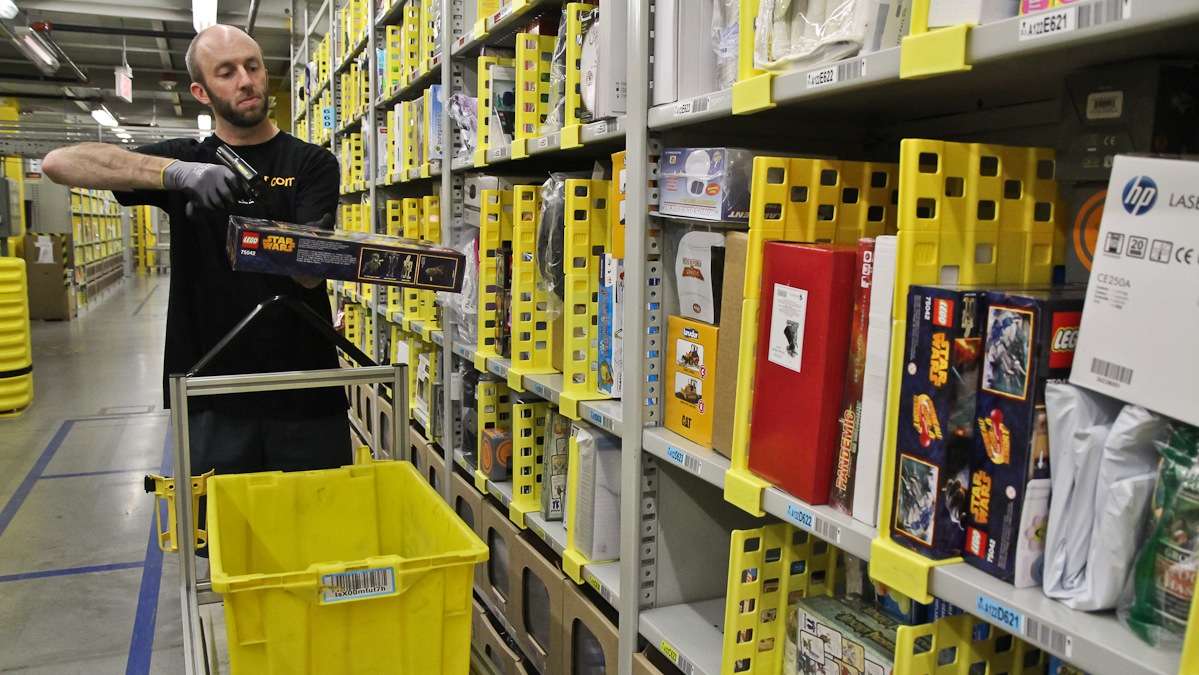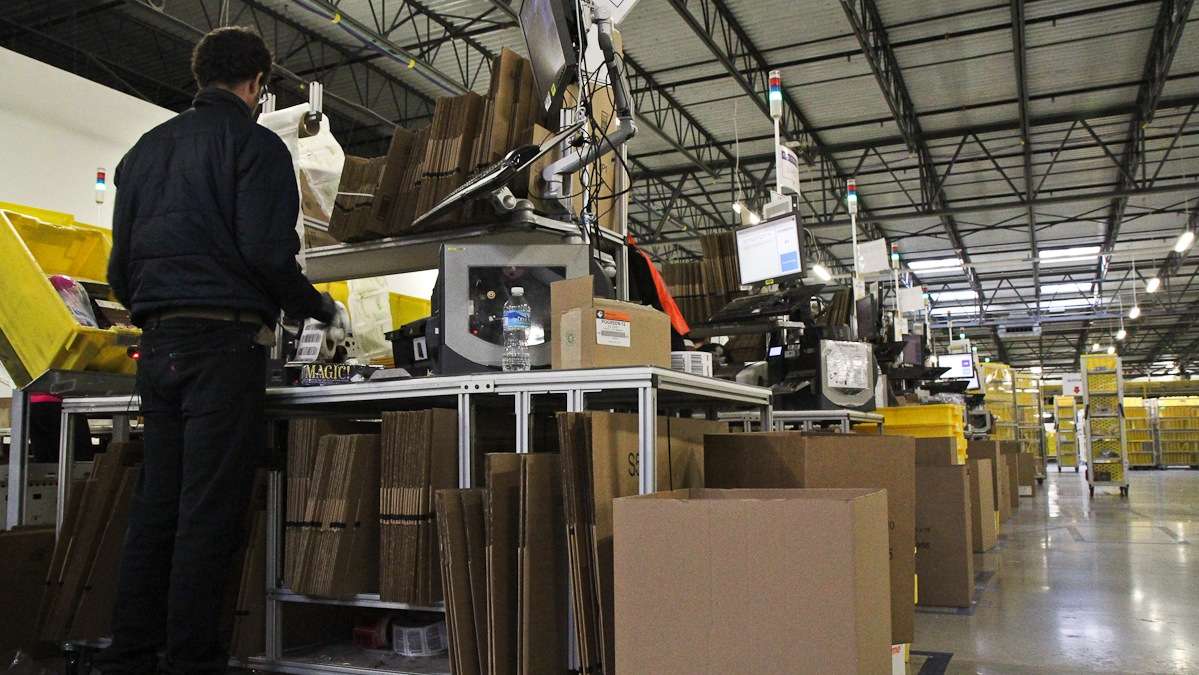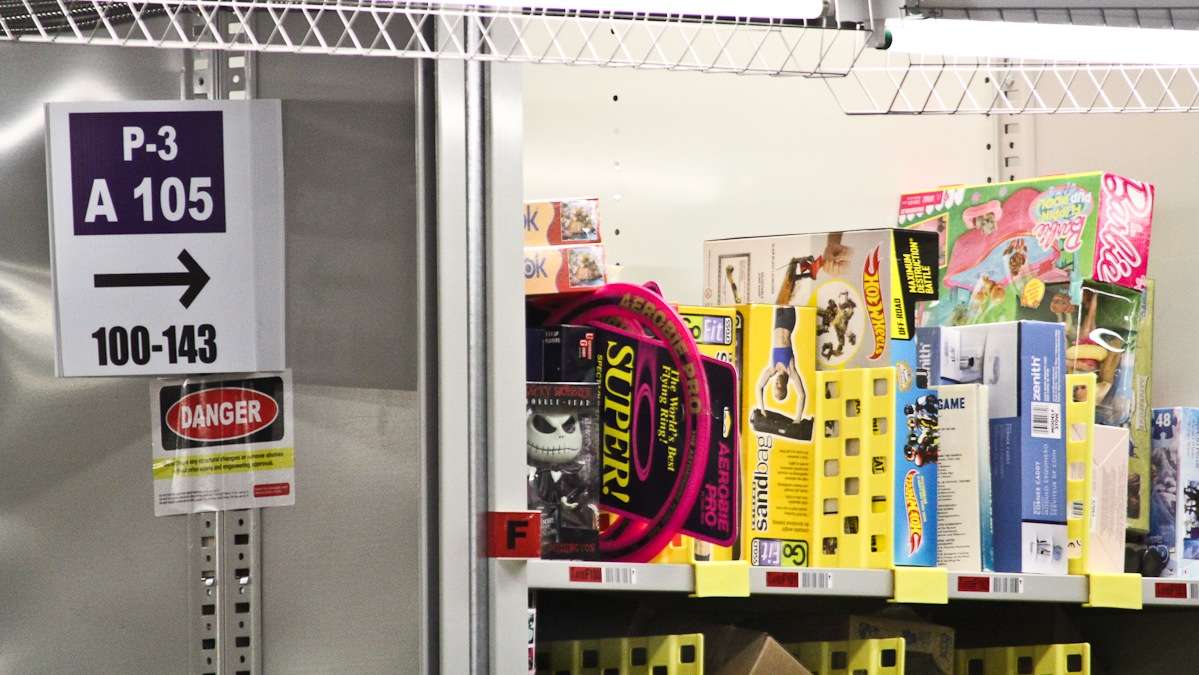Race-based assumptions collide but do not combust on a Philadelphia porch
-

-

-

-

-

-

-

-

-

-

-

Amazon's Fulfillment Center in Middletown
Race matters. It shapes our stories — innocuous ones that unfold on front porches, harrowing ones that end in funerals and protests. Prejudice runs in all directions. But power, in the United States, is held disproportionately in hands that look like mine. And with that power comes a stern obligation.
The bell rang. As I came downstairs to answer the door last Monday evening, I could see an African-American man on my porch. He looked at me through the glass security door, his eyes saucered in surprise, and said, “But … there’s a black man!”
My turn, now, to feel a little derailed. Was he talking about himself, noting his reflection in the glass? Announcing his presence, in case I hadn’t noticed the color of his skin?
“Um … hello?” I said, from behind the still-locked door. He was pointing, this man, toward the living room, a spot over my left shoulder.
“I saw the painting, and I figured you’d be black.” He cupped one hand to his forehead. “This is not how I usually start. I have this whole thing I say. Oh, man…” and his voice trailed off, a tendril of embarrassment.
I looked. Ah, the painting: a large acrylic of a dark-skinned man — I’ve always imagined him to be Haitian or Jamaican — knees apart, palms calloused, eyes closed in percussive bliss, drumming on a set of bongos that seem to glow internally, the painting’s sole source of light.
“So,” he continued, “I was thinking you were black … and then you came downstairs, and I thought, ‘Okay, maybe her husband’s black.'”
“Wrong on both counts,” I said. “I’m white. And no husband.”
He laughed. I laughed. And I unlocked the door.
Why race matters
Clearly, we’d ventured way off-script. How often does a conversation, especially one between strangers on an urban porch at twilight, begin with a mutual declaration of race? In fact, how often do I acknowledge my race — in person, in writing — except when I check “Caucasian” on a form?
And what about your assumptions? If I tell you that the painting in question, the one that led my visitor to think he was visiting the home of a black family, was made by my sister-in-law, a gifted artist who used to live in New York, do you picture a black woman (sure, African-American artists choose African-American subject matter) or white (I’m white, so likely my sister-in-law is, too)? Maybe I won’t tell you, and you can just wobble for a while in your vertigo.
Anyway, isn’t it better to be color-blind, to avert our attention from skin, to focus not on glaring differences, but on the commonality of character? Does it matter that the man on my porch was black, that I am white?
It matters, because while he and I were tripping over stereotypes that mild November evening, Ferguson was in flames. Again.
It matters, because just a few days before a grand jury of nine whites and three blacks opted not to indict the police officer who shot an unarmed black 18-year-old, another white cop in another state shot and killed another young black boy.
No one is unaffected by assumptions or privilege
Once on the porch, my door no longer a barrier between us, I got a better look at my visitor. His pin-striped suit and buffed brown shoes said “natty dresser.” His vocabulary said “college.” His lapel badge said “NRG.”
Would those things — money, education, profession — protect him, if push came to shove came to trigger, from what happened to Michael Brown, to Trayvon Martin, to Tamir Rice?
Fifteen years ago, I would have said yes. But that was B.C. — before Cynthia.
Cynthia is a former housemate and, now, friend for life, an incisive woman with espresso skin, close-cropped hair, a luminous smile. I could tell, from the first phone call, how much we had in common: education, politics, sardonic humor.
But none of that stopped the man in the elevator of an Upper West Side apartment building from asking Cynthia one morning, “Are you here to clean 14C?”
“No,” she said. “I live in 14C.”
Nothing — not dressy clothes or a swipe of carmine lipstick, not her ebullient laugh or her abiding kindness — protected my dear friend and soul-sister, as she looked for the entrance to a party at my oh-so-liberal synagogue, from being asked, not once, not twice, but three different times, if she was with the catering crew.
These things do not happen to white people. This run-of-the-mill racism, this daily bludgeoning of insult and assumption. What’s worse, white people don’t even know it’s not happening. That’s how privilege works: It’s the perk we notice only in its absence, the invisible lubricant of power smoothing our way through the world.
There, on my porch last Monday night, race-based assumptions collided. But they did not combust. A few people got off the H bus and trudged uphill. The man — by now, we’d exchanged names and a handshake — recovered his composure enough to deliver his NRG pitch and spot me a brochure on the 100-percent wind-power plan.
By the time my partner (white, female) and our daughter (also white) returned from their errand and opened the gate, my visitor was sitting in the wicker chair and tapping information into his tablet computer. I was about to sign, with my fingertip, on the dotted line.
If I’d indeed been black, as he guessed, would this story have a different arc? Or what if I were white, but married to a black man who arrived home in the midst of my encounter with someone he didn’t expect, a man (black or white — take your pick) making himself comfy on our porch?
Still feeling that vertigo?
Prejudice and power
Race matters. It shapes our stories — innocuous ones that unfold on front porches, harrowing ones that end in funerals and protests. And in the 90 seconds that Michael Brown and Darren Wilson encountered each other before one of them was too dead to tell what happened, it wasn’t only bullets that were launched. You can bet that both of their brains were firing a rat-a-tat of fear-driven, adrenaline-stoked guesses about who the other man was and what he was likely to do.
Prejudice runs in all directions. But power, in the United States, in 2014, notwithstanding a twice-elected African-American president, is held disproportionately in hands that look like mine.
And with that power comes a stern obligation: Notice your privilege, that invisible cloak. Name it. Use it to make this world a more just place. Stop claiming color-blindness. Have conversations — with your partner, with your kids, with your neighbors — that acknowledge race’s role in all of our stories. Do it now. Before another brown-skinned boy — cousin, brother, neighbor — reaches for his pocket and loses his life.
WHYY is your source for fact-based, in-depth journalism and information. As a nonprofit organization, we rely on financial support from readers like you. Please give today.

